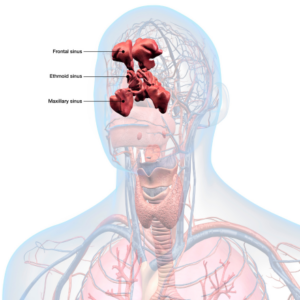Nose & Throat Anatomy
While commonly recognized for its roles in breathing and detecting scents, the nose is a multifaceted organ, composed of various intricate components...

Delving into Nose & Throat Anatomy
Complexities of the Nose

- External Nasal Projection: The central cartilage prominence that varies across individuals, contributing to each person’s distinctive look.
- Nostrils: These are the twin gateways that usher in air, with the septum offering a neat division.
- Septum: Crafted from bone and cartilage, the septum plays a pivotal role in providing the nose its form and function.
- Nasal Cavities: Beginning at the nostrils, these spaces come equipped with protective mucous layers and hair-like structures called cilia, filtering incoming air.
Insights into the Sinuses
Situated adjacent to the nasal cavities, the sinuses are air reservoirs offering multiple benefits, such as aiding voice modulation and as a protective barrier against external contaminants.
- Ethmoid Sinus: Positioned close to the bridge of the nose, it starts its development at birth and continues until one reaches puberty.
- Maxillary Sinus: Nestled beside the cheeks, it’s another structure present right from birth.
- Frontal Sinus: Found within the forehead region, it starts taking shape around the age of seven.
- Sphenoid Sinus: Nestled deep within the face, it completes its formation during adolescence.
A Look at the Throat
The throat is a multifunctional muscular tube that is adept at transporting air, food, and fluids while central to voice production.
- Larynx: Commonly termed the voice box, it’s an intricate ensemble of cartilage, muscle, and other tissues that enclose the vocal cords.
- Vocal Cords: These structures, situated atop the trachea’s entrance, are the vocal sound’s origin point.
- Epiglottis: This flexible tissue flap ensures safety by covering the vocal cords during swallowing, preventing food and external elements from reaching the lungs.
- Tonsils and Adenoids: Present as lymphatic clusters, these are strategically placed to bolster the body’s first line of defense against infections.